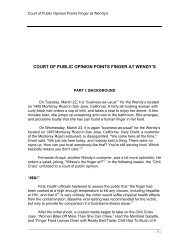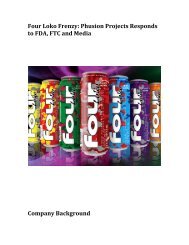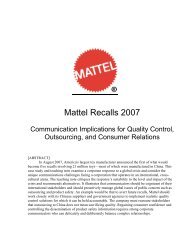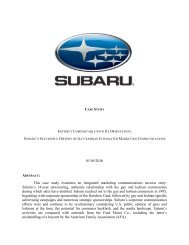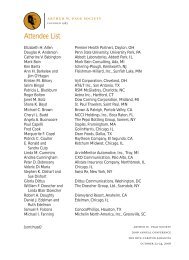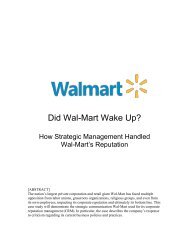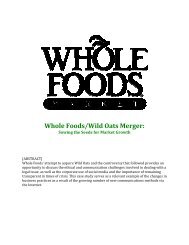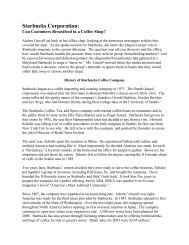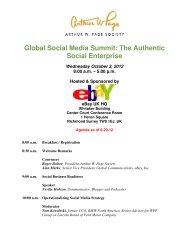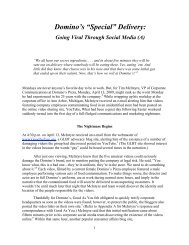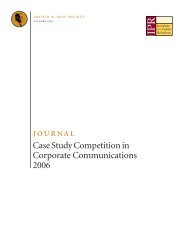McDonald - The Arthur Page Society
McDonald - The Arthur Page Society
McDonald - The Arthur Page Society
Create successful ePaper yourself
Turn your PDF publications into a flip-book with our unique Google optimized e-Paper software.
per cent, which means sales per restaurant have dropped. In contrast, Burger King outlets<br />
increased by 6.9 per cent, and its sales grew by 9.2 per cent.<br />
Meanwhile, in <strong>McDonald</strong>'s international division - where 80 per cent of profits come<br />
from the UK, France, Germany, Canada, Japan, Brazil and Australia - the company is<br />
having to open smaller, lower volume stores because prime sites in the big cities are<br />
already established.<br />
It is also a victim of demographics. America's population is ageing and the teenagers who<br />
grazed on hamburgers in their teens are now middle-aged and more health-conscious.<br />
Last year the company launched the Arch Deluxe, a "sophisticated" adult burger with a<br />
secret sauce of mayonnaise and two mustards, and an optional slice of bacon, in a bid to<br />
appeal to this "baby boomer" generation, who are supposedly more interested in taste.<br />
But the Arch Deluxe has not proved to be the saviour <strong>McDonald</strong>'s hoped it would. It is<br />
high in fat, high in calories and expensive - baby boomers decided that if they were going<br />
to be unhealthy and eat a burger, they would rather eat a "vulgar" one at 99 cents than a<br />
"sophisticated" one at $1.79. And of course the Arch Deluxe, in trying to be the perfect<br />
junk food for adults, failed to appeal to <strong>McDonald</strong>'s core market - children.<br />
Ron Paul, president of Technomic, says the hype surrounding the launch of the Arch<br />
Deluxe put too much consumer expectation on the product. "<strong>The</strong> Arch Deluxe was less<br />
than industry observers expected. It was not good enough or different enough to move<br />
anyone away from their favourite sandwiches elsewhere," he adds.<br />
Earlier this year, in a dramatic shift in direction, <strong>McDonald</strong>'s moved away from<br />
concentrating on upmarket, added-value burgers to a discount strategy: Campaign 55<br />
(1955 was the year of the chain's inception).<br />
Under Campaign 55, the company slashed the price of a sandwich, such as an Egg<br />
McMuffin or a Big Mac, down to the very appealing 55 cents (30p). Sort of. What many<br />
customers failed to understand was that they could only get their 55-cent sandwich if they<br />
bought a drink and French fries as well, and if the particular sandwich they wanted was<br />
on offer that month.<br />
Campaign 55 confused and annoyed consumers, and importantly, it failed to deliver on<br />
what it promised. After six weeks the company pulled the promotion, except for a variant<br />
on the breakfast menu. It is a humiliating climbdown for a company not used to reverses.<br />
<strong>McDonald</strong>'s is also suffering from a quality perception problem - observers just do not<br />
rate the taste of its burgers.<br />
Damon Brundage, an analyst at NatWest Securities in New York, says: "Frankly the<br />
future isn't very good. <strong>The</strong>re has been deterioration in the quality of <strong>McDonald</strong>'s products<br />
where Burger King and Wendy's have got better."<br />
53



